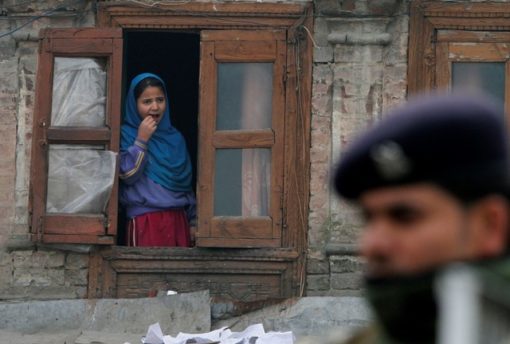
Srinagar: The government on Monday partially restored mobile communication in Kashmir Valley more than two months after it enforced a severe clampdown in the region by blocking mobile and internet services across the state.
The postpaid mobile connections from all telecom companies were restored at 12 noon while prepaid connections continue to remain affected due to the communication restrictions imposed by the government. The restrictions were imposed on August 5 after the government unilaterally abrogated Article 370 and bifurcated the state into two union territories.
Due to the decision, as many as 40 lakh connections were restored across the Valley out of the affected 80 lakh mobile connections under the state-owned BSNL and several other private telecom companies.
The decision to restore communication came as part of what the government termed a “gradual removal of restrictions” for the normalisation of situation.
The decision brings respite to people living in all the 10 districts of the Valley. Earlier, as many as 40,000 landline connections were restored in the region, while mobile networks were already functional in Jammu and Ladakh divisions. The mobile internet services, however, continue to remain affected along with broadband and business commercial-line services across the region.
The decision comes days after the government issued an advisory for the return of the tourists to the Valley. Earlier, the government had issued a statement asking tourists and non-local Kashmiris to leave the Valley ahead of the revocation of Article 370.
“With this step, tourists will be able to visit the state without being handicapped by the lack of phone connectivity. Students can be in touch with their parents while attending schools and businessmen can be in touch with the customers and transporters can contact clients,” a government spokesperson said.
The partial restoration of mobile phones has brought relief to people, however, many expressed disdain over the clampdown. Situation in the Valley, according to the government, has improved a lot since August, but many feel there is palpable tension in the region due to the government’s massive clampdown.
“Our plight is apparent from the fact that the government takes decision on its own on behalf of the people. The decision to restore phones is not a favour done to us. We pay for these services and do not deserve to be kept from it,” a resident of Srinagar told NewsClick.
Even as the government has partially lifted restrictions on movement and communication, Section 144 continues to be imposed at places across the region to thwart any attempts of mass protests. Hundreds are still detained including lawyers, businessmen, activists and politicians—along with three former chief ministers of the erstwhile state of Jammu and Kashmir.
As people continue to observe shutdown as a mark of protest against the decision of Abrogation of Article 370, public transport remains affected and all shops and business establishments remain shut. Education in schools, colleges and universities also remains affected. The government, however, believes that the decision to restore phones will help locals to resume their normal lives—something that, many businessmen think, will not happen.
“Our trade leaders are still under arrest, lodged in jails outside the state. In the era of e-commerce and e-tendering, how far can we go with the partial restoration of mobile phones?” questioned a tour and travel operator, while speaking to NewsClick.
After suffering economic losses worth thousands of crores due to the shutdown, the businessmen say that now, they can at least make calls to corroborate their losses.




